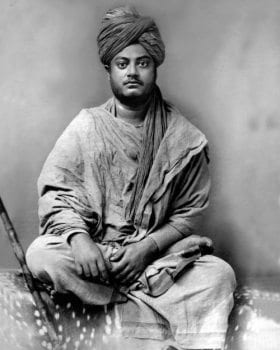Tuesday, April 8, 2014
6:00PM-8:00PM
Assembly Hall
The term ‘world religion’ derives from Max Weber, and by implication from Hegel, but both these thinkers denied this status to Hinduism itself, seeing it respectively as a ‘dream religion’ and ‘other wordly’. This lecture seeks to show, however, that Hindu public figures, at least from the early colonial period onward, sought to make Hinduism a faith that was recognized in the wider world and also worked within Indian society through education, missionising and social work. Key figures here were Rammohan Roy and Keshub Chandra Sen in the nineteenth century. Vivekananda developed this theme further with his appearance at the World Parliament of Religions in Chicago in 1893 and foundation of the Ramakrishna Mission.
The lecture goes on to consider twentieth-century ‘Hindu populism’, particularly as it was represented in the career of Madan Mohan Malaviya. This was form of religious activity which needs to be carefully distinguished from the Arya Samaj and from later ‘Hindutva.’ The lecture closes by considering the thought of Sarvepalli Radhakrishnan, second President of the Republic of India.
As part of events surrounding the Vivekananda Visiting Professorship, established by the Indian Ministry of Culture to commemorate the legacy of Swami Vivekananda and to enrich scholarly life at the University of Chicago, Sir Christopher Bayly of Cambridge University, who will be part of the faculty for Spring Quarter 2014 and 2015, will offer a talk entitled “Making Hinduism a ‘World Religion’: Before and After Swami Vivekananda.”
Free and open to the public.
Presented by the Global Voices Lecture Series, Southern Asia at Chicago, SALAC/COSAS and the Indian Ministry of Culture.
